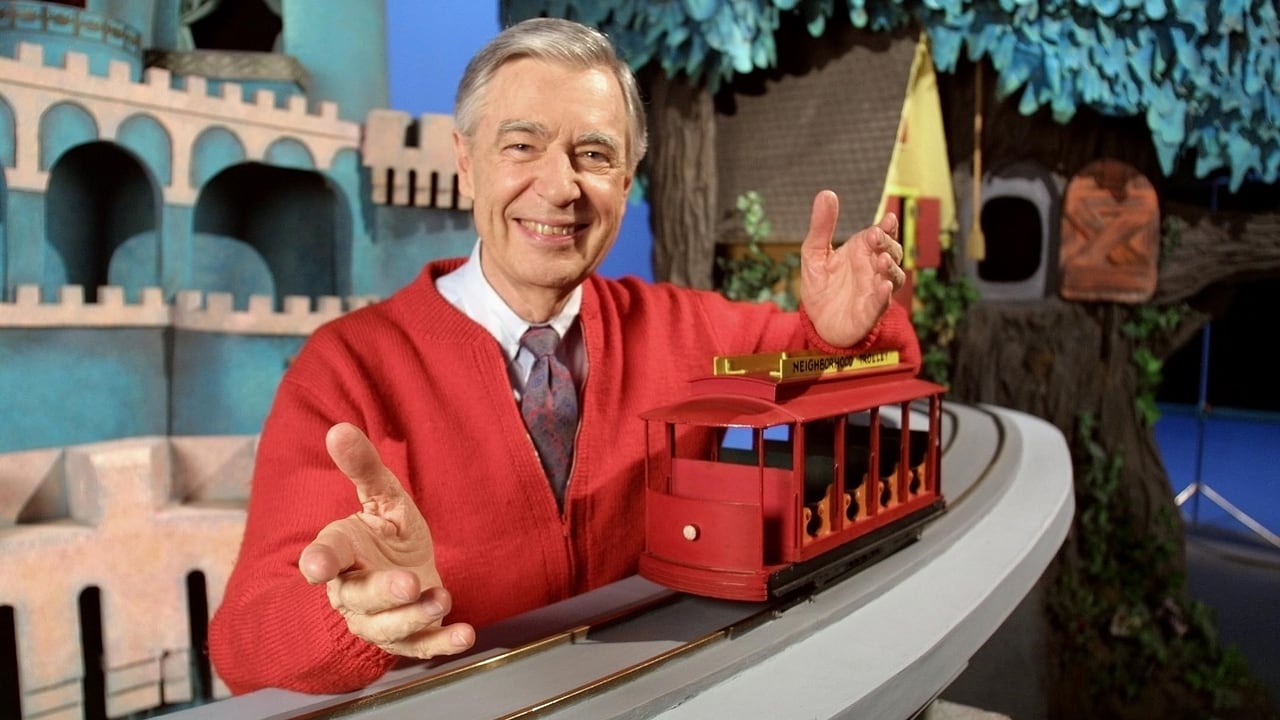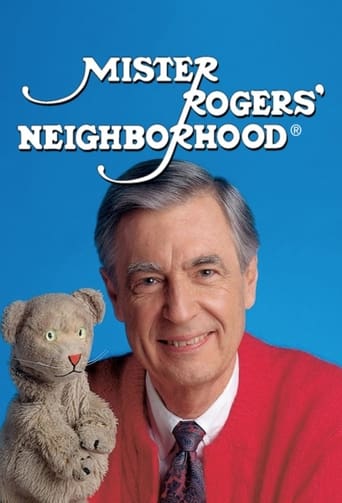Mister Rogers' Neighborhood (1968)

Mister Rogers' Neighborhood is an American children's television series that was created and hosted by namesake Fred Rogers. The series originated in 1963 as Misterogers on CBC Television, and was later debuted in 1966 as Misterogers' Neighborhood on the regional Eastern Educational Network, followed by its US network debut on February 19, 1968, and it aired on NET and its successor, PBS, until August 31, 2001. The series is aimed primarily at preschool ages 2 to 5, but has been stated by PBS as "appropriate for all ages". Mister Rogers' Neighborhood was produced by Pittsburgh, Pennsylvania, USA public broadcaster WQED and Rogers' non-profit production company Family Communications, Inc.; previously known as Small World Enterprises prior to 1971, the company was renamed The Fred Rogers Company after Rogers' death.
Watch NowMister Rogers' Neighborhood
1968 / TV-Y

Mister Rogers' Neighborhood is an American children's television series that was created and hosted by namesake Fred Rogers. The series originated in 1963 as Misterogers on CBC Television, and was later debuted in 1966 as Misterogers' Neighborhood on the regional Eastern Educational Network, followed by its US network debut on February 19, 1968, and it aired on NET and its successor, PBS, until August 31, 2001. The series is aimed primarily at preschool ages 2 to 5, but has been stated by PBS as "appropriate for all ages". Mister Rogers' Neighborhood was produced by Pittsburgh, Pennsylvania, USA public broadcaster WQED and Rogers' non-profit production company Family Communications, Inc.; previously known as Small World Enterprises prior to 1971, the company was renamed The Fred Rogers Company after Rogers' death.
Seasons & Episode

While tree-sitting for Mr. McFeely, Rogers draws a picture of a tiny oak tree. McFeely compliments the drawing, and later, he shows a video on how adult tricycles are made. Cousin Mary returns to the Neighborhood of Make-Believe to show her videotape of various trees.


Rogers takes his final visit to his sand table, leading to a video insert of Jessica Ricciardelli playing with sand at a beach. Afterward, Rogers makes his second and final trip to Tony Chiroldes' toy-and-book store. King Friday pronounces the Neighborhood of Make-Believe will hold an art festival. That doesn't impress Lady Elaine, who appoints herself the art judge.


The Neighborhood of Make-Believe sees Chuck Aber and HulaMouse's finished sand sculpture. Lady Elaine quickly criticizes it and just about everything else. But the sand sculpture inspires Lady Aberlin to dance, and leads Daniel to create a tiny mobile. Daniel suggests why Lady Elaine might be hurting people's feelings. Rogers does a video insert of his visit to a lady's pottery.


Rogers makes his final visit to Negri's Music Shop, where he meets an expert playing the glass harmonica. In the Neighborhood of Make-Believe, several discover just why Lady Elaine is hurting people's feelings.


Everyone in the Neighborhood of Make-Believe now knows that Lady Elaine is still dwelling on that day long ago when somebody hurt her feelings, but when the time comes to "judge" all the artwork she arrives not with a judgment, but with a collage of all the neighbors. It is Lady Elaine's rightful act of compassion toward those around her. Mr. McFeely and Rogers share a video collage of artists in their various fields.

Mister Rogers' Neighborhood is an American children's television series that was created and hosted by namesake Fred Rogers. The series originated in 1963 as Misterogers on CBC Television, and was later debuted in 1966 as Misterogers' Neighborhood on the regional Eastern Educational Network, followed by its US network debut on February 19, 1968, and it aired on NET and its successor, PBS, until August 31, 2001. The series is aimed primarily at preschool ages 2 to 5, but has been stated by PBS as "appropriate for all ages". Mister Rogers' Neighborhood was produced by Pittsburgh, Pennsylvania, USA public broadcaster WQED and Rogers' non-profit production company Family Communications, Inc.; previously known as Small World Enterprises prior to 1971, the company was renamed The Fred Rogers Company after Rogers' death.
Watch Trailer
Free Trial Channels






















